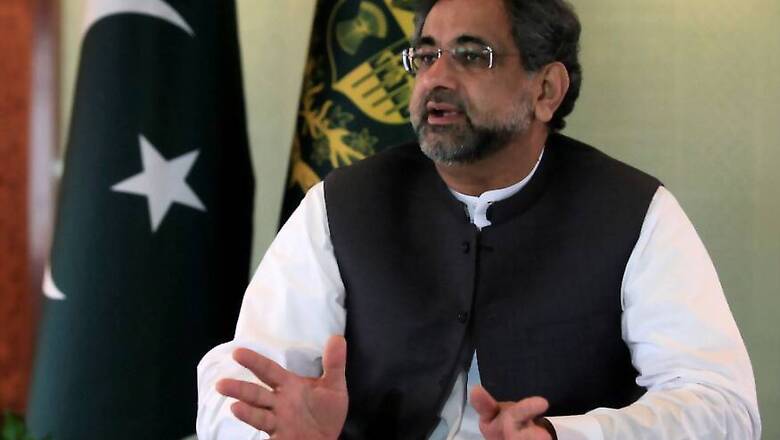
views
Islamabad: Pakistan Prime Minister Shahid Khaqan Abbasi has offered a major amnesty scheme and income tax respite as part of efforts to increase the tax base, ahead of elections this year.
Abbasi announced this late on Thursday after a meeting of the Economic Advisory Council, according to the Dawn.
"We are introducing a tax amnesty scheme through which people with undeclared income earned before June 30, 2017 on assets within the country will be able to bring them in the tax net by simply paying a five per cent penalty," the prime minister said.
He added that people who hold undocumented assets outside the country will also be able to declare them through the new amnesty scheme by paying a 2 percent penalty.
Fixed assets will incur a 3 per cent penalty, to be evaluated at the market value of the asset, which cannot be less than the cost of its acquisition.
Foreign liquid assets like cash, securities and bonds held abroad and in local dollar accounts may be declared with a 5 per cent penalty.
Dollar account holders in Pakistan who have purchased dollars with undeclared funds can also regularise them on 2 per cent payment.
Further, all remittances less than USD 100,000 per year per person will continue without any questions from any agency about the source of funds and enjoy tax exemption but remittances greater than that amount will enjoy tax exemption but may be scrutinised by the Federal Board of Revenue.
Furthermore, any new foreign exchange accounts can only be opened by tax filers.
"People who take part in the amnesty scheme will be given a one-time exemption from accountability and other laws," the prime minister explained. However, he stressed that politically exposed persons and their families will not be able to avail the amnesty scheme.
The prime minister noted that only 1.2 million Pakistanis file income tax returns. He further noted that of these, only 700,000 actually paid tax, while others filed returns but paid no income tax.
Presenting his package as an incentive for more people to enter the tax net, Abbasi stressed he felt this to be the most optimum way to maximise the government's revenues keeping in mind the significant challenges it faces.
He said those with annual income up to Rs 1.2 million will be exempted from tax while 5 per cent tax will apply on annual income from Rs 1.2 to 2.4 million. 10 per cent will apply on income from Rs 2.4-4.8 million and 15 per cent on over Rs 4.8 million.
The government previously used 12 tax brackets for salaried individuals and eight for self-employed individuals to calculate their income tax liabilities.
Abbasi also revealed that national identity cards numbers of all citizens will now become their tax numbers and people will now be able to use these numbers to file taxes by simply filling out a form.
"Last year, only 0.7 million people paid taxes and most of those did not have an option since they were salaried employees. This is an unsustainable situation," he said.
He also hinted at major reforms to tax property holders. "On any property that a citizen purchases, they will have to pay a one per cent 'presumptive tax'. That tax will be adjusted in their annual taxes," he said.
"No purchase of property over Rs 4 million is possible for non-filers of tax returns from July 1, 2018," he added.
"To avoid under-invoicing (in property sale and purchase deeds), the government now holds the right to buy any property that a citizen holds by paying 100 per cent over its declared price," the prime minister warned.
















Comments
0 comment